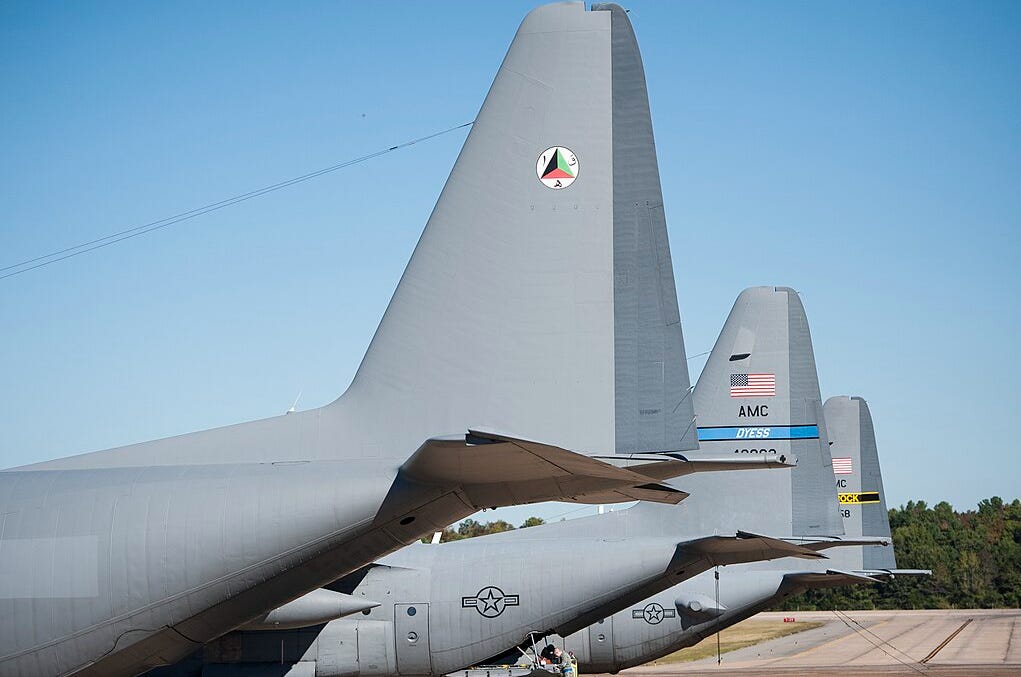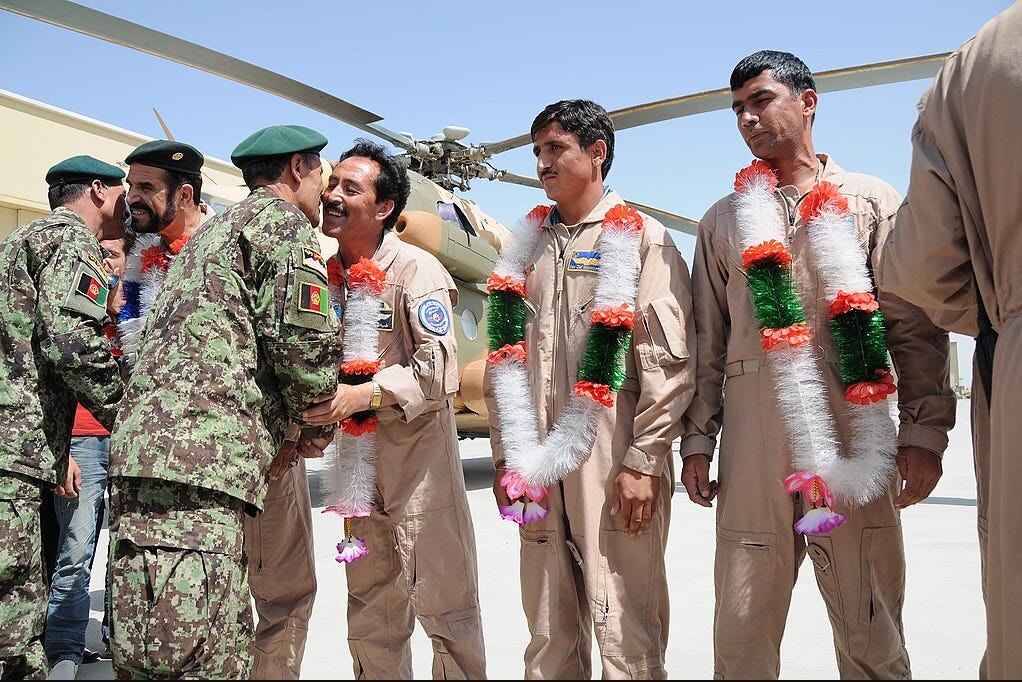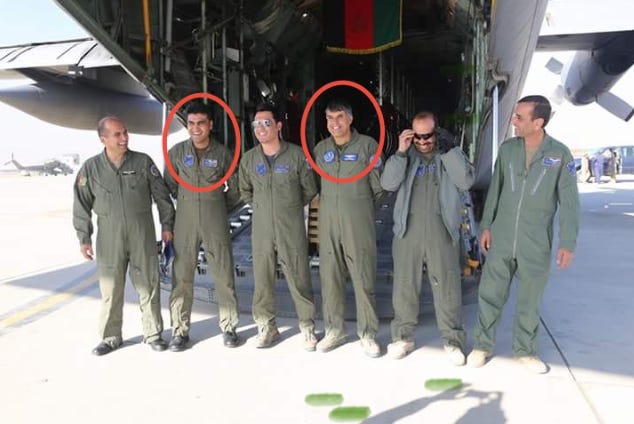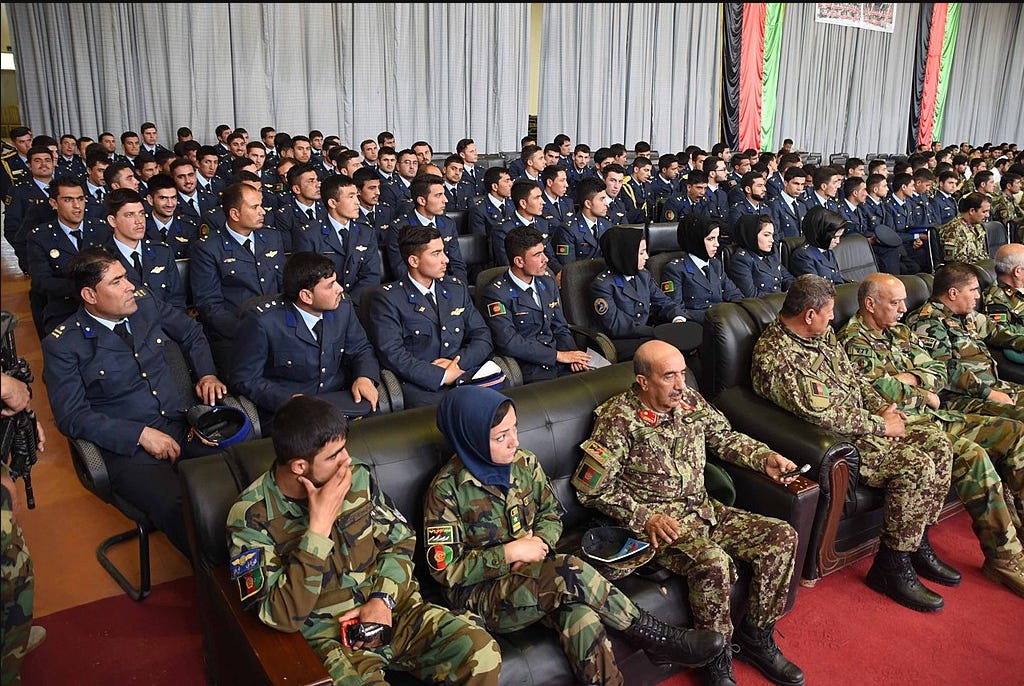
(GCV Note: The first article can be found here)
The air was thick with uncertainty as I walked toward the flight line. The weight of the night ahead pressed against my chest like a stone, but I couldn’t afford to let it show. My mission was clear—we had to set up the tower and runway lighting for the civilian charter aircraft meant to evacuate us. But deep down, I knew this was more than just another operation. This was survival.
The Kabul wing commander and I had decided to send two C-130s. If anything happened to the first aircraft, the second would be our lifeline. It was a fragile plan, but fragility is sometimes all you have in war.
At 11:00 PM, I called my driver, Abdul Hashim. When he arrived, I handed him a bundle of hard cash.
“Take this to my family,” I said.
He hesitated, staring at me with knowing eyes. “Sir, where are you going?”
“Kandahar,” I replied. “But don’t tell my family.”
For a moment, he said nothing. Then, his voice cracked. “Sir… please don’t go.”
I swallowed hard. “I have to, brother.”
“Give me twenty minutes,” he said urgently. “I will get the money to your family and bring an M-4. I want to come with you. If anything happens, at least I can protect you while you fly.”
His words hit me like a knife. Abdul Hashim—this man, this soldier—had given everything for his country. He had been shot multiple times. His wife had endured four surgeries. His two young sons needed their father. And yet, he was ready to walk into the fire again for me.
I shook my head. “Brother, wait for me. I know for sure I am coming back. If anything happens to the aircraft, your job is to protect my family until I return.”
He turned quickly and walked away without another word. I could feel the pain in his silence.

A Call I Couldn’t Answer
As I prepared for the flight, my phone rang. It was my wife.
“Where did you get this money?” she asked. “The banks are closed. You don’t have money in your account.”
“It was a gift from LTG Alizai,”
She wasn’t convinced. “I don’t want the money. I want you home. Our son is sick. He cries every time he drinks milk. He’s in pain.”
I had no answer. The guilt clawed at me, but I couldn’t break it now. The only way out of this conversation was to push her away.
“I’m a soldier!” I snapped. “I received my orders to fly!”
She went quiet for a moment. Then, in a sharp, knowing voice, she said, “There is no airfield left in Afghanistan that isn’t under Taliban control.”
She saw through me. She knew.
“The commander is here. I’ll call you back,” I lied again and hung up.
I stared at my phone for a moment, then opened WhatsApp and typed a message to S-Win (Strength and Winston group):
“Hello, my friend. I have a mission to Kandahar tonight. If you don’t hear back from me, please help my family.”
Then I put my phone away.

The Flight into Darkness
The Wing Commander and I started the engines. The roar of the C-130 felt different this time—heavier, more final. We took off into the blackness, the city lights of Kabul disappearing behind us.
Forty minutes later, Kandahar was ahead. But it was like flying over the ocean at night—pitch black, no moon, no city lights. Our only markers were two Hilux trucks parked at the runway threshold, but the dust in the air made them nearly impossible to see.
Then, suddenly—fireballs.
Small bullets lit up the night, cutting through the sky in streaks of orange. I saw them through my night vision goggles, but I didn’t say a word to the wing commander he was flying. We had agreed—no panic, no hesitation.
At ten miles out, I spotted a vehicle with its headlights on. I immediately took control of the aircraft, shutting off all interior and exterior lights. I lined up for the approach, searching for the ground.
At three miles, the runway emerged from the darkness.
One hundred feet above the ground, I turned the landing lights on.
“I have the landing Runway insight,” Wing Commander said.
He put us down smoothly.
As we taxied, I scanned the surroundings. Everything was quiet—but that kind of silence in war is never safe.
Then, we saw them.
Thousands of soldiers, waiting.
The moment we opened the ramp, chaos erupted. The NSU commander tried to control the rush, but after a few seconds, even he was swallowed by the wave of desperate men.
Within only a few minutes, the aircraft was packed with 160 soldiers. As we began taxiing, more men clung to the aircraft, their hands gripping anything they could hold. The loadmaster struggled to pull them in, and we had to stop again just to get them inside.
At 2:00 AM, we landed back in Kabul.

A Cold Red Bull and a War That Wasn’t Over
General Ramin met us at the aircraft with a cold Red Bull. He smiled, but it didn’t reach his eyes.
“What’s next?” he asked.
I exhaled. “Let’s wait for the second aircraft.”
Minutes later, it landed.
Col Wardak did the walk-around. “We’ve got a few holes,” he reported. “Small hydraulic leak.”
It didn’t matter.
The plan was only to drop the team of eight soldiers and leave, but that night, both aircraft crews made a decision. A decision no one had officially approved.
We were going back.
We were going to save more.
By the time the sun rose, we had rescued 600 soldiers.
As the golden light of morning washed over Kabul, I finally lay down to sleep. But I knew the night would come again. And when it did, we would be ready.
To Be Continued
Colonel Khial Shinwari is an Afghan and American hero. GCV is honored to call him his brother.




A moving and enlightening story. Thank you for sharing it.